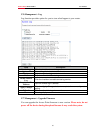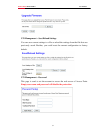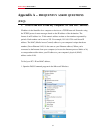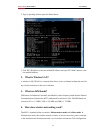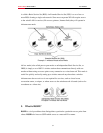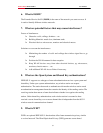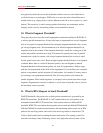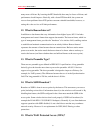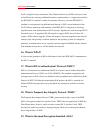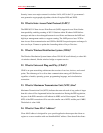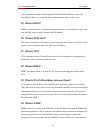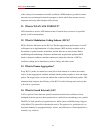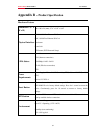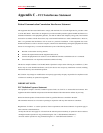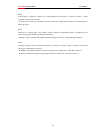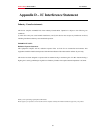
Wireless RouterRNX-N400LX User Manual
Wi-Fi’s original security mechanism, Wired Equivalent Privacy (WEP), has been viewed
as insufficient for securing confidential business communications. A longer-term solution,
the IEEE 802.11i standard, is under development. However, since the IEEE 802.11i
standard is not expected to be published until the end of 2003, several members of the
WI-Fi Alliance teamed up with members of the IEEE 802.11i task group to develop a
significant near-term enhancement to Wi-Fi security. Together, this team developed Wi-Fi
Protected Access. To upgrade a WLAN network to support WPA, Access Points will
require a WPA software upgrade. Clients will require a software upgrade for the network
interface card, and possibly a software update for the operating system. For enterprise
networks, an authentication server, typically one that supports RADIUS and the selected
EAP authentication protocol, will be added to the network.
16. What is WPA2?
It is the second generation of WPA which based on the final IEEE 802.11i amendment to
the 802.11 standard.
17. What is 802.1x Authentication? Protocol (TKIP)?
802.1x is a framework for authenticated MAC-level access control, defines Extensible
Authentication Protocol (EAP) over LANs (WAPOL). The standard encapsulates and
leverages much of EAP, which was defined for dial-up authentication with Point-to-Point
Protocol in RFC 2284. Beyond encapsulating EAP packets, the 802.1x standard also
defines EAPOL messages that convey the shared key information critical for wireless
security.
18. What is Temporal Key Integrity Protocol (TKIP)?
The Temporal Key Integrity Protocol (TKIP), pronounced tee-kip, is part of the IEEE
802.11i encryption standard for wireless LANs. TKIP is the next generation of WEP, the
Wired Equivalency Protocol, which is used to secure 802.11 wireless LANs. TKIP
provides per-packet key mixing, a message integrity check and a re-keying mechanism,
thus fixing the flaws of WEP.
19. What is Advanced Encryption Standard (AES)?
58



